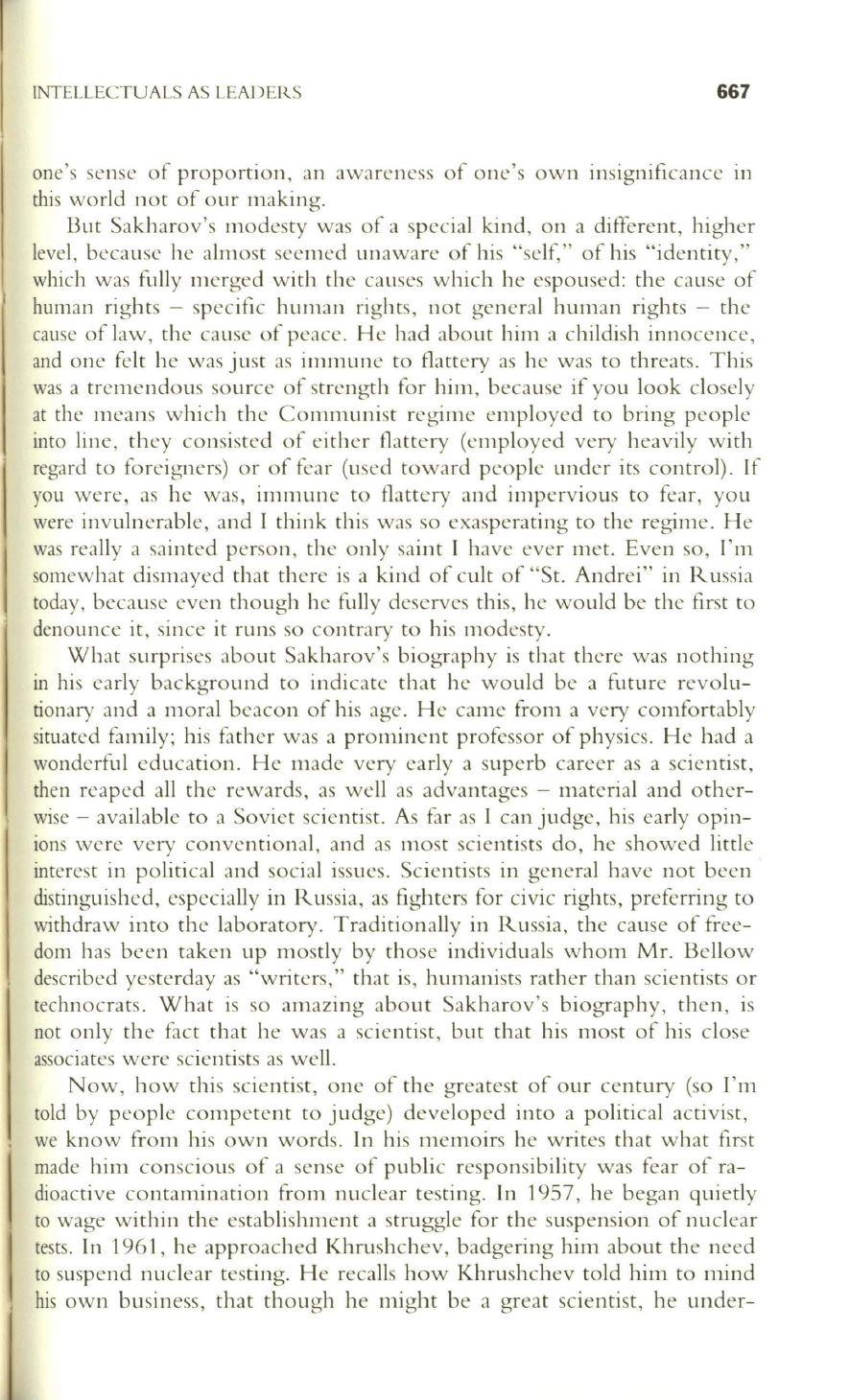
INTELLECTUALS AS LEADERS
667
one's sense of proportion, an awareness of one's own insignificance in
this world not of our making.
llut Sakharov's modesty was of a special kind, on a different, higher
level, because he almost seemed unaware of his "self," of his "identity,"
which was fully merged with the causes which he espoused: the cause of
human rights - specific human rights, not general human rights - the
cause of law, the cause of peace. He had about him a childish innocence,
and one fclt he was just as immune to flattery as he was to threats. This
was a tremendous source of strength for him , because if you look closely
at the means which the Communist regime employed to bring people
into line , they consisted of either flattery (employed very heavily with
regard to foreigners) or of fear (used toward people under its control). If
you were, as he was, immune to flattery and impervious to fear, you
were invulnerable, and [ think this was so exasperating to the regime. He
was really a sainted person, the only saint I have ever met. Even so,
['m
somewhat dismayed that there is a kind of cult of "St. Andrei" in Russia
today, because even though he fully deserves this, he would be the first to
denounce it, since it runs so contrary to his modesty.
What surprises about Sakharov's biography is that there was nothing
in his early background to indicate that he would be a future revolu–
tional), and a moral beacon of his age. He came from a very comfortably
situated family; his father was a prominent professor of physics. He had a
wonderful education. He made very early a superb career as a scientist,
then reaped all the rewards, as well as advantages - material and other–
wise - available to a Soviet scientist. As far as [ can judge, his early opin–
ions were very conventional, and as most scientists do, he showed little
interest in political and social issues. Scientists in general have not been
distinguished, especially in Russia, as fighters for civic rights, preferring to
withdraw into the laboratory. Traditionally in Russia, the cause of free–
dom has been taken up mostly by those individuals whom Mr. Bellow
described yesterday as "writers," that is, humanists rather than scientists or
technocrats. What is so amazing about Sakharov's biography, then, is
not only the fact that he was a scientist, but that his most of his close
associates were scientists as welJ.
Now, how this scientist, one of the greatest of our century (so I'm
told by people competent to judge) developed into a political activist,
we know from his own words.
[n
his memoirs he writes that what first
made him conscious of a sense of public responsibility was fear of ra–
dioactive contamination from nuclear testing. [n 1957, he began quietly
to wage within the establishment a struggle for the suspension of nuclear
tests. [n 1961, he approached Khrushchev, badgering him about the need
to suspend nuclear testing. He recalls how Khrushchev told him to mind
his own business, that though he might be a great scientist, he under-


